How to get rid of cockroaches – expert advice for banishing these notoriously hard-to-kill pests quickly and permanently
Act quickly to avoid your space becoming unsanitary, experts urge


Design expertise in your inbox – from inspiring decorating ideas and beautiful celebrity homes to practical gardening advice and shopping round-ups.
You are now subscribed
Your newsletter sign-up was successful
Want to add more newsletters?

Twice a week
Homes&Gardens
The ultimate interior design resource from the world's leading experts - discover inspiring decorating ideas, color scheming know-how, garden inspiration and shopping expertise.

Once a week
In The Loop from Next In Design
Members of the Next in Design Circle will receive In the Loop, our weekly email filled with trade news, names to know and spotlight moments. Together we’re building a brighter design future.

Twice a week
Cucina
Whether you’re passionate about hosting exquisite dinners, experimenting with culinary trends, or perfecting your kitchen's design with timeless elegance and innovative functionality, this newsletter is here to inspire
While dealing with pests in your home is unpleasant, learning how to get rid of cockroaches thoroughly and quickly, is essential. They carry illnesses, breed in sheltered, unseen areas of your home and can even worsen allergies and asthma symptons.
Not to mention, a roach infestation can smell and these critters are speedy, opportunistic and hardcore survivalists, making them notoriously hard to catch and kill if you don't know how.
You've already identified this common pest as the one scurrying around your home, and our panel of pest experts is here to share how to banish cockroaches for good, including finding how the roaches are entering your home, their hiding spots and food sources, as well as which commericial and natural pest control methods will work.
How to get rid of cockroaches fast
1. Identify the source

Begin by identifying the source of the problem. Check for gaps in doors, windows, and around utility pipes and boxes.
When you're desperately wondering how to get rid of cockroaches, it can be difficult to know where to start, particularly if it's not clear where they're even coming from. But, finding how they've come in, or where they're sheltering, will help you successfully target and banish them forever, quickly.
Cockroaches are one of a few pests that can come up through your drains, hitch a ride on grocery bags, hide in a parcel left on your doorstep, and sneak inside through small cracks. They're fast too, so they can sometimes shoot inside your home from an infestation next door, which is especially common in apartment living.
As for where they hide out, common cockroach hideouts typically occur in places where there is food and moisture. Even condensation on the back of your refrigerator, where the coils are housed, is enough water to help a cockroach survive.
Matt Smith, pest control expert at Green Pest Management, advises, 'Cockroaches prefer to stay in tight confined hiding spaces because it's dark and they love pressure on their bodies – so they typically only come out in the open to eat or move from one hiding area to the other.'
Design expertise in your inbox – from inspiring decorating ideas and beautiful celebrity homes to practical gardening advice and shopping round-ups.
For that reason, check inside and above your kitchen cabinets, around your dishwasher and stove, underneath the sink, and in any other tight spaces, such as the area behind your refrigerator. Fix any leaks and consider purchasing some of the best kitchen organizers to keep food contained.
'When trying to get rid of cockroaches, you must be persistent and thorough,' says plumbing expert Mullins. 'Address not only the visible pests but also their hiding places and potential food and water sources.
The biggest factors roaches look for in a place to hide in your home are darkness, lack of frequent foot traffic, and moisture. As a result, these are the most likely places you will find them hiding:
- Kitchens and bathrooms: Roaches gravitate towards moisture and food, so it should come as no surprise that spaces often have standing water and high humidity, and food sources are attractive to these pests. They commonly hide under sinks, behind appliances like refrigerators and stoves, and inside cabinets.
- Basements and attics: These areas often provide the dark, undisturbed environments roaches prefer. In homes with clutter or stored items, roaches can hide in cardboard boxes (they are attracted to adhesive products, which is why you may find them hiding in cardboard boxes), around water heaters, and in the insulation.
- Furniture and electronics: You may find roaches hiding in unexpected places like furniture and electronic devices. They often seek out the warmth of electronic devices, hiding inside televisions, game consoles, and power strips. They are also attracted to furniture since they may readily locate food sources in leftovers or crumbs and can easily fit through the sofa's cracks because of their flat, slender bodies.
- Nooks and crannies: Gaps and holes in your home are great hiding places for cockroaches. These can include the corners where you've allowed the recycling to accumulate, the backs of picture frames, and your baseboards and trim. Roaches also like to hide in cracks and crevices around countertops and baseboards. This is one of the main similarities between a bed bug vs. a cockroach.
- Dark places: Roaches hide in dark places – anywhere from in drawers, cabinets, and drains to behind objects and underneath furniture will be attractive to them. They can even hide in books. That’s why those with roach problems might often find that when they turn on the lights in a room, they can see roaches scurry away to unseen spots.
2. Seal up entry points and remove attractants

Use caulk to seal up any entry points.
Once you've identified the ways insects are entering your home, seal them as quickly and as soon as possible to prevent any more cockroaches from entering your space. We recommend using a long-lasting caulk to do this, such as the bestselling GE Advanced Silicone available at Walmart.
Then, remove any of the things attracting roaches to your clean house in the first place. They've survived millions of years because they are opportunistic and NOT fussy.
As Brett Bennett, director of operations at PURCOR Pest Solutions, says 'The most natural way to get rid of roaches is just by starving them out and making your home as unpleasant and inhospitable a place as possible.
'Roaches thrive in areas that are damp, dark, and unattended, so making sure your under-sink areas and basement are cleaned up, dry, and regularly monitored is a good way to chase out roaches.'
Be extra vigilant when cleaning the kitchen, and do so regularly, emptying the garbage, wiping down surfaces, getting rid of crumbs and spills and cleaning kitchen cabinets, as food waste and debris will inevitably act as attractants.
To get rid of cockroaches from your kitchen permanently, Lauren Doss from Nashville Maids adds, 'Vacuuming regularly can also help remove any eggs or cockroaches that have made their way into your kitchen,' or indeed anywhere else.
The fewer tight corners around the home the better, too, so making use of some decluttering tips and taking the time to overhaul your organization is also sure to help.
Don't forget about water sources, either. Remember that sink full of water or dirty dishes? Dripping bathroom faucets? Bowls of pet water and food? They're all great sources of both food and water for thirsty, hungry cockroaches, too.
3. Try targeted treatments
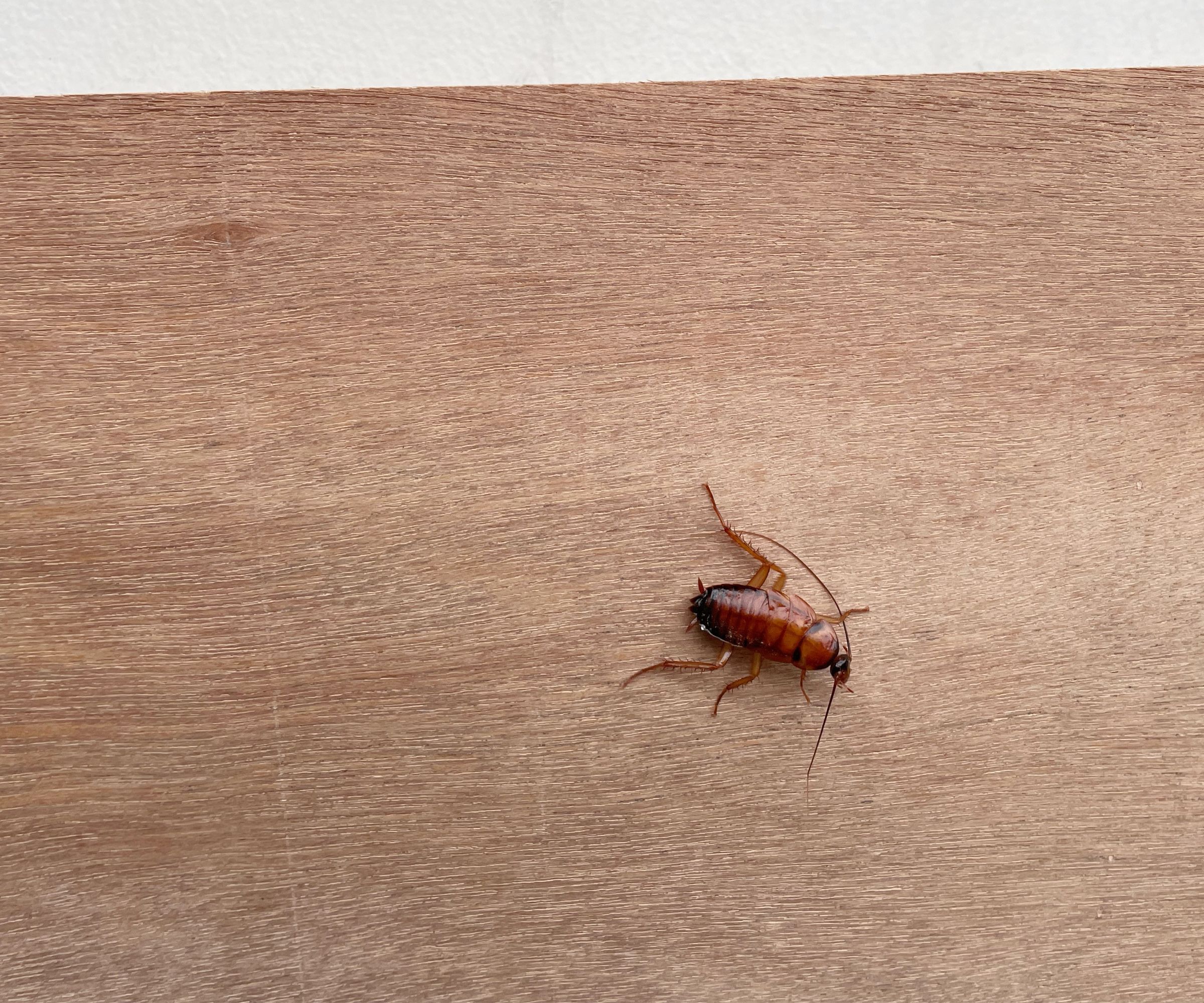
Commercial bug killers are oft-recommended for good reason.
One of the most effective pieces of advice you may hear or read when researching how to get rid of cockroaches in the home is using targeted, commercial treatments.
For example, the Advion Cockroach Gel Bait available at Walmart is a popular solution that can get rid of roaches within a couple of weeks – simply apply dots of the gel over cracks, seams and corners, along baseboards, around appliances and so on.
Replace the gel after six months (especially when getting rid of cockroaches in the bedroom) so that the roaches cannot build up tolerance and remove any killed cockroaches, as other roaches can feed off them.
Entomologist Matt adds, 'The best way we have found to treat them is a combination of gel baits, boric acid, IGR, or insect growth regulator, [such as Martin's I.G. Regulator Insect Killer Liquid Concentrate available at Walmart] and pesticide spray.' Importantly, bleach is not effective for killing roaches.
The Raid Ant & Roach Killer available at Amazon is highly rated and kills roaches on contact. It can be used when getting rid of ants, too. As always, be sure to follow the instructions carefully and thoroughly.
All prices were correct at the time of publication.
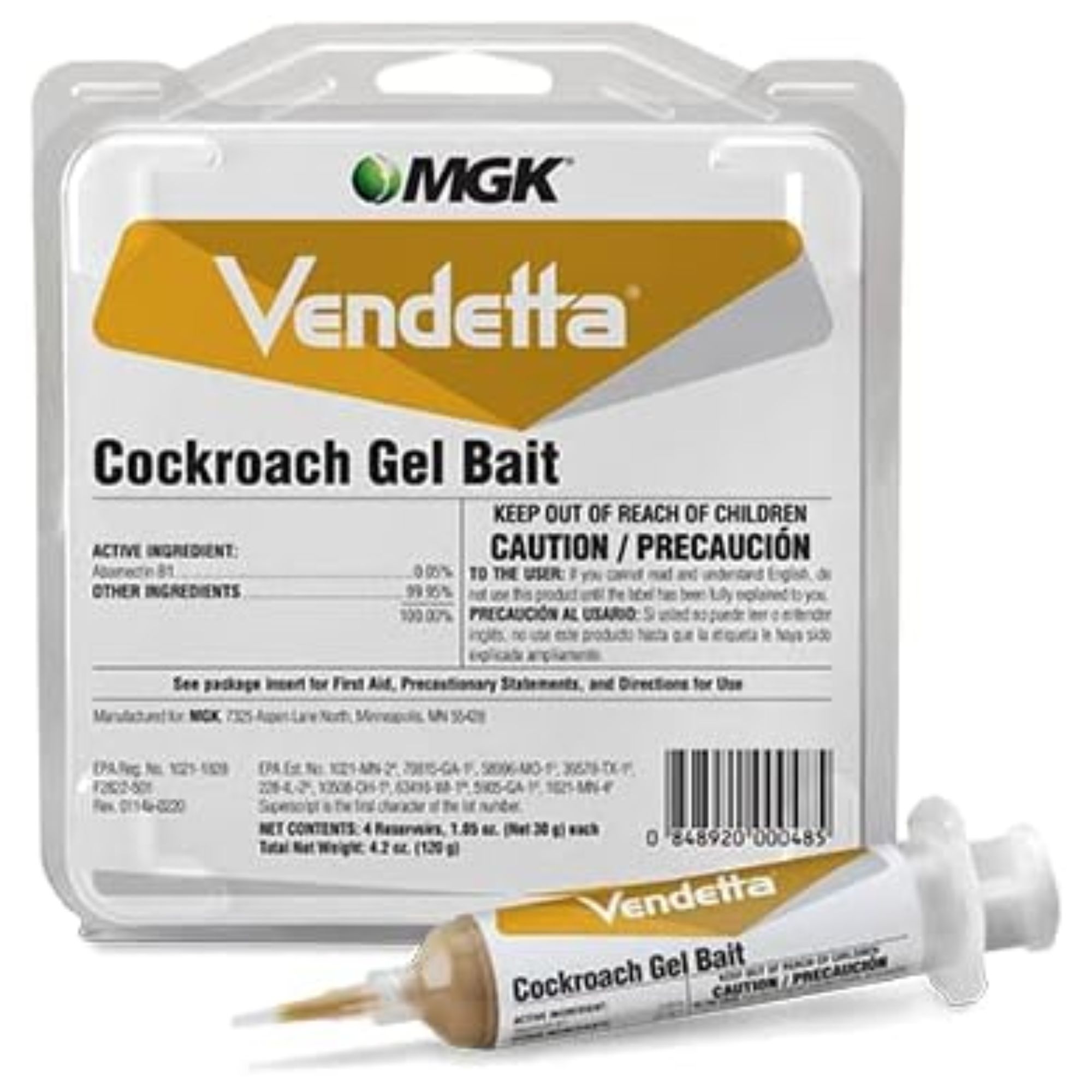
This gel bait won't let off strong odors or go runny in warmer weather, and both attracts and kills cockroaches.
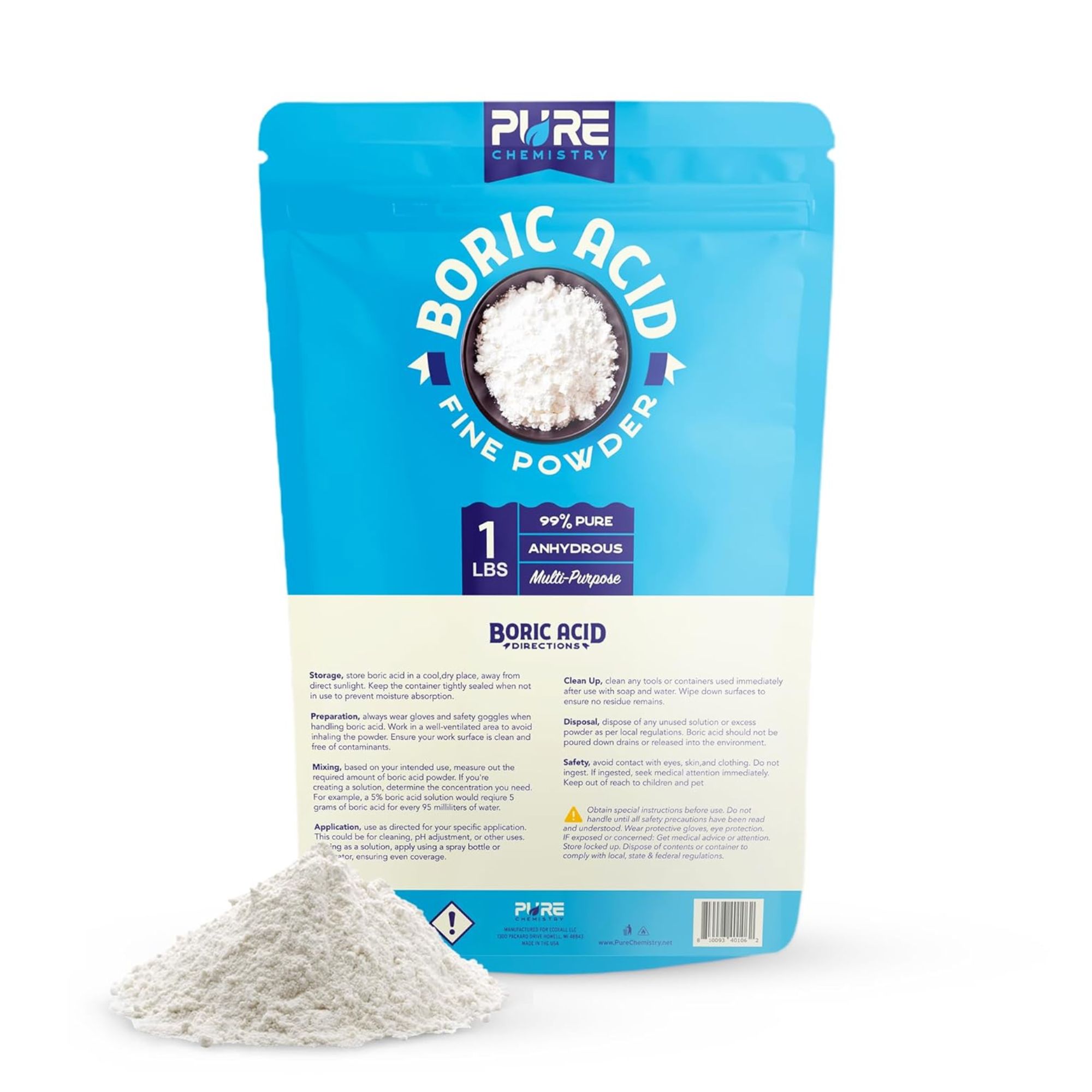
Boric acid isn't just effective when it comes to killing cockroaches – it can also be used for cleaning, unclogging drains, removing stains from laundry and eliminating odors.
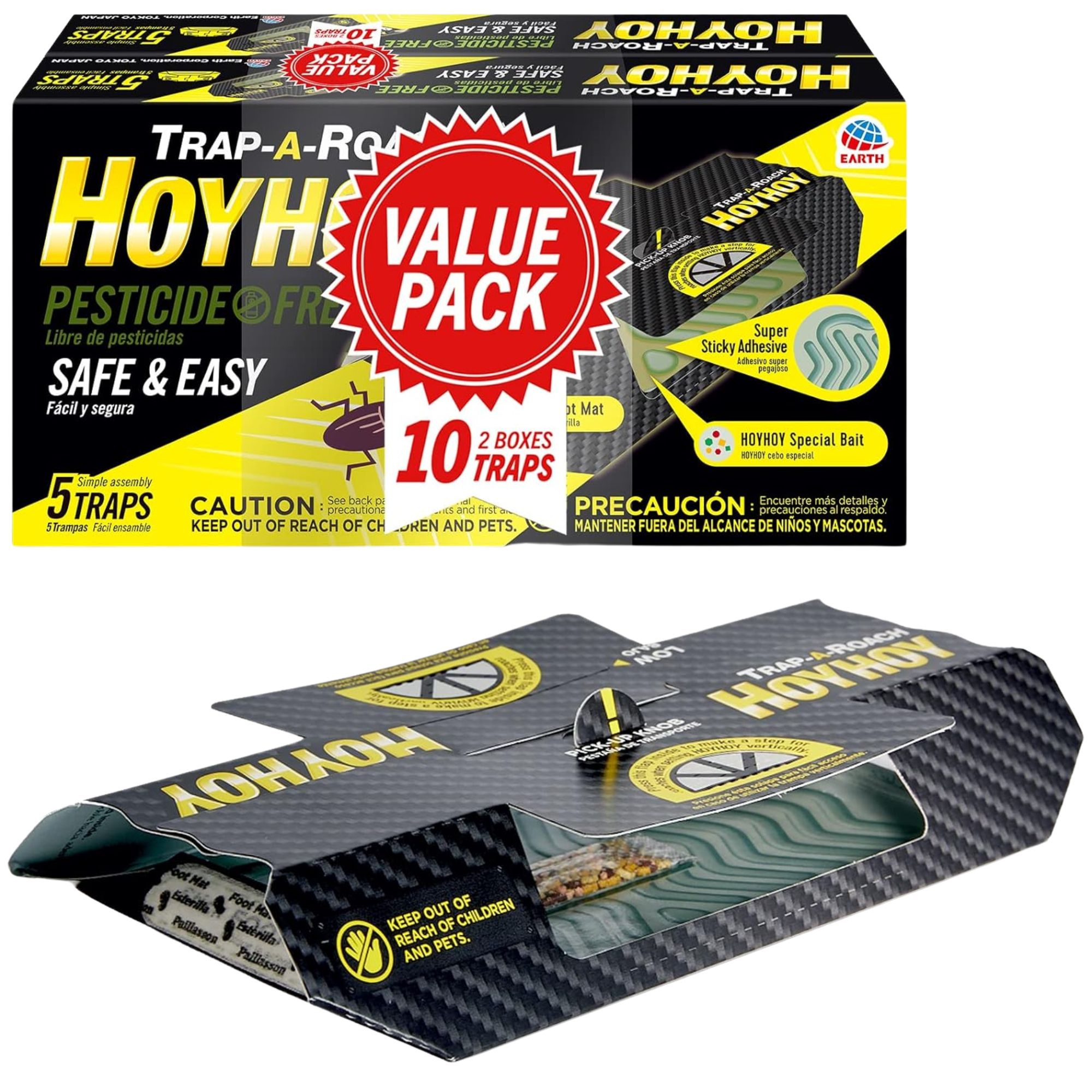
These baited glue traps feature super sticky adhesive to trap cockroaches and prevent them escaping, and are safe to use around both children and pets.
Using natural deterrents and remedies

Natural deterrents can be an effective way to prevent cockroaches from returning to your home.
According to Natasha Wright, a certified entomologist and technical director at Braman Termite & Pest Elimination, the fight against cockroaches doesn’t need to involve using harsh chemicals and toxins in your house.
'Just as when you’re getting rid of fruit flies, the best cockroach deterrents may be hiding in your kitchen cabinet,' she says. 'From coffee grounds to keep bugs away to dish detergent, these cockroach repellents can help you deal with these pests naturally and permanently.'
These are the seven non-toxic pest control and homemade bug sprays our pros recommend so you can get rid of cockroaches naturally, while keeping your household safe.
1. Sugar and borax

The mix of sugar and borax both attracts and eliminates cockroaches.
Borax is effective for roach infestations because it will slowly dry the exoskeleton of the insects, affect their digestive system, and finally kill them,’ says certified entomologist Natasha. The sugar attracts them, and the boric acid kills them.
Natasha recommends mixing borax and sugar in a 3:1 ratio before spreading the homemade deterrent in the spots where you have noticed them or hotspots such as under sinks, behind appliances, and in dark corners.
We recommend using the 20 Mule Team All Natural Borax available at Amazon, which is unscented, and can also be used to remove soap scum, dirt, grease and grime from around your home.
Alternatively, you can make 'dough balls' made of boric acid, sugar, and flour. Mix them by combining equal amounts of the three ingredients to make dough balls around an inch in diameter. Sugar and flour are available at most food stores, as well as Walmart and Amazon.
Put them where you've seen the cockroaches; they will feed on them and be killed. Be careful, though, as it is really important to ensure that the balls are placed out of the way of pets and children.
You can also use boric acid, such as the Boric Acid Fine Powder available at Amazon to the same effect. 'Sprinkle small amounts of the mixture in the areas where you’ve seen cockroaches or you suspect they’re living, such as behind appliances in the kitchen, cabinets and near cracks in walls,' says Daniel Baldwin, board-certified entomologist at Hawx Pest Control. 'Closely monitor the area over a few days to see whether the mixture has been effective and replenish if necessary.'
You can also use this method if you need to know how to get rid of termites naturally, how to keep crickets out of the house, or how to get rid of larder beetles. Really, this method will work on any small pest around the house, from ants to earwigs.
2. Peppermint oil

Peppermint oil is a safe and non-toxic way to deter cockroaches.
Peppermint oil is one of the most celebrated pest control deterrents on the market, so it is unsurprising that this scent even garden pests hate, is also effective in curing cockroach infestations.
‘A peppermint oil spray can deter roaches in a non-toxic way and is safe to use around children,’ says entomologist Natasha. She suggests making a homemade bug spray by mixing 15 drops of peppermint with 10 fluid oz of water in a spray bottle, such as the Equate 8 oz Plastic Spraybottle available at Walmart before spraying the formula around infested areas. We also recommend using peppermint oil to get rid of mice.
However, you should be careful using this method around pets, as peppermint oil can be harmful to cats and dogs.
It's worth knowing, too, that this needs reapplication as when the smell has dissipated – within a day or two – the averting impact will lift.
3. Dish soap

You probably already have some next to your kitchen sink, and dish soap is just as effective for getting rid of cockroaches as it is for cleaning dishes.
If you already know how to remove coffee stains from your favorite fabric, you may already be aware of the power of dish soap – and it can be used to get rid of cockroaches, too.
‘A mixture of water and soap can suffocate and kill cockroaches and is especially effective against common German roaches,' says entomologist Natasha. 'Mix four tablespoons of dish detergent in a liter of water and spray it where you’ve noticed activity.’
While you probably already have a bottle next to your sink, we recommend the Dawn Ultra Dish Soap Dishwashing Liquid available at Walmart as a great option for getting rid of roaches and cleaning your dishes alike.
I also use this dish soap solution for streak-free windows, adding white vinegar, such as the Great Value Distilled White Vinegar available at Walmart, as an easy solution for a spotless shine.
If you spray it on the floor, be mindful that dish soap can make the floor slippery, so approach the area carefully.
4. Make a food bait trap

Use the cockroach's innate drive for food against it.
As Brendan Polichronopoulos, exterminator and pest control service professional at LocalProBook, says, 'This is a good option if the colony of insects has not yet had time to grow.'
For this reason, this cockroach-killing method should certainly never be used when dealing with a full-blown infestation, as you definitely don't want to attract more cockroaches into your home.
To begin with, you will need a deep jar or bowl, such as the Mainstays SS 3QT Multi-Use Mixing Bowl available at Walmart. 'Grease its inner surface with vegetable oil, such as the affordable Happy Belly Soybean Vegetable Oil available at Amazon, and put some sugar, honey, cookies, bread or fruit on the bottom,' continues Polichronopoulos. 'Having smelled the bait, the cockroach will get inside, but because of the fat, it will not be able to get out.'
You can also opt to use cardboard instead of a jar, and cover the internal sides with double-sided tape. 'Put something tasty in the centre,' says Polichronopoulos. 'This bait must be changed every three to four days, otherwise it will lose its aroma and stop attracting cockroaches.'
For added efficacy, add borax to your trap to easily kill the cockroaches, making them easier to remove from your home.
5. Diatomaceous earth
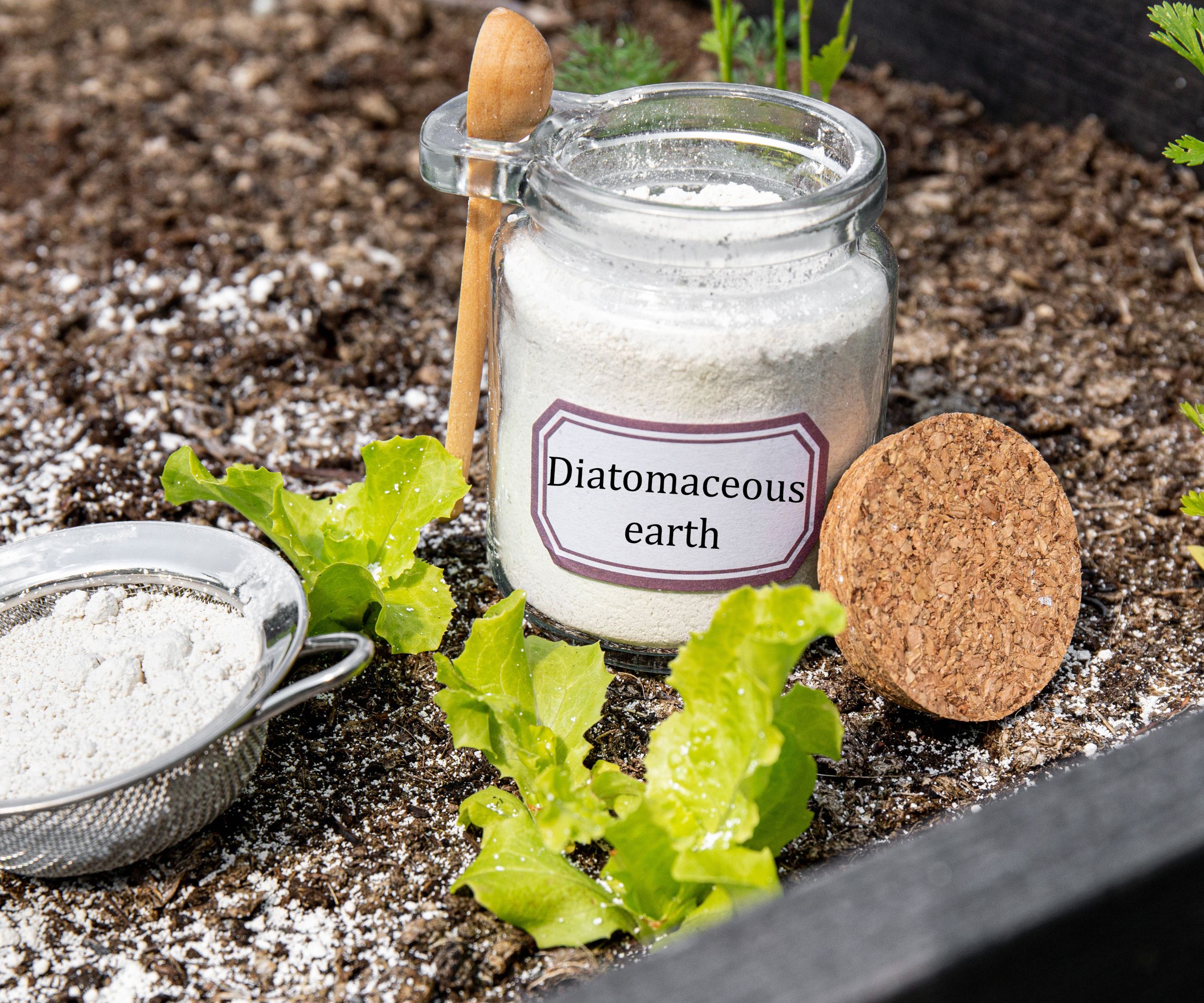
Diatomaceous earth can be used both in your home and around your garden.
Another highly effective way to kill cockroaches is to sprinkle diatomaceous earth in areas where you've seen them, or near places where they might be coming in.
This substance, also known as DE, is derived from the fossilized remains of microscopic aquatic organisms, and while it is non-toxic to humans, it effectively kills cockroaches by dehydrating them. We recommend using the bestselling Harris Food Grade Organic Crawling Insect Killer Powder available at Walmart when trying this method.
This method usually takes about 12 hours to kill roaches, by which time they may have transferred some of the substance to their food, which other roaches might ingest. Thus, you can target more than one cockroach at a time.
You can mix diatomaceous earth with equal parts cocoa powder and flour to make it attractive to these pests, or mix diatomaceous earth with water and use it as a spray.
We recommend applying DE around baseboards or walls where roaches may travel frequently and directly on top of cracks and crevices where cockroaches hide during the day. Reapply diatomaceous earth once a week for a full month and use it in strict compliance with the product label.
Do make sure you wear a mask, such as the NNPCBT 3 Ply Black Disposable Face Mask available at Amazon, to avoid inhalation of any powder that rises into the air when you lay it down.
The key is not using too much, as that will deter the cockroaches away from the area when what you want is to allow them in the area, and have the powder cling to their bodies.
6. Coffee grounds
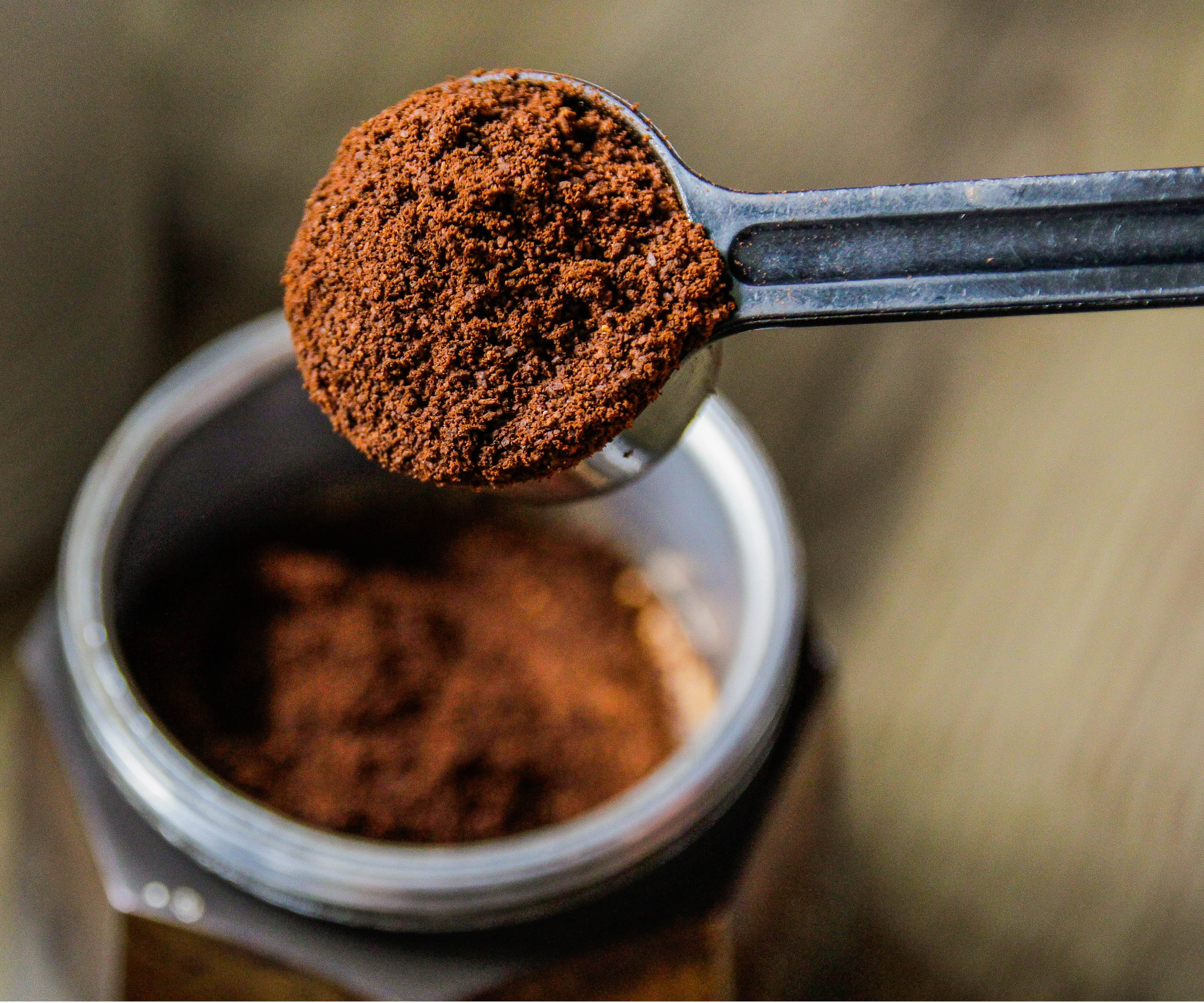
Make the most of your morning cup of coffee.
You can also use leftover grounds from your best coffee maker to deter roaches, but not in the way you might initially expect. Cockroaches are attracted to the aroma of ground coffee – meaning it can be used to create the perfect trap.
‘First, put the grounds in small paper cups,' says entomologist Natasha, such as the GUSTO Small Paper Cups available at Amazon. 'Then, place those cups in water-filled jars, then place the jar against walls or baseboards where you’ve seen bugs,’ she adds. 'The scent will lure the pests into the trap where they cannot escape, so you can dispose of the contents the following day.'
You can also use any leftover coffee grounds in your yard, just make sure you know where not to use coffee grounds in the garden.
7. Lemon juice

Lemon sprays are not just great for natural cleaning, but the smell is a cockroach deterrent.
‘Lemons possess natural anti-pathogenic properties that keep roaches away,’ entomologist Natasha explains. Sharing her cleaning tips to clean with lemon juice, the expert recommends adding two to three tablespoons of lemon juice with a few gallons of water in a bucket before mixing and washing the problem areas with a mop, such as the top rated O-Cedar EasyWring Microfiber Spin Mop available at Amazon, in the solution.
8. Call in a professional

Sometimes, it is necessary to call in pest control pros.
Sometimes, despite your best efforts, you may notice enduring signs it's time to call pest control pros.
Fumigation is costly and means moving out of your home while the procedure is being carried out, but it may be necessary if you've been struggling to get rid of cockroaches from your home, have been dealing with a large infestation or you're finding this pest issue is impacting your physical or emotional health.
Cockroach eliminating essentials
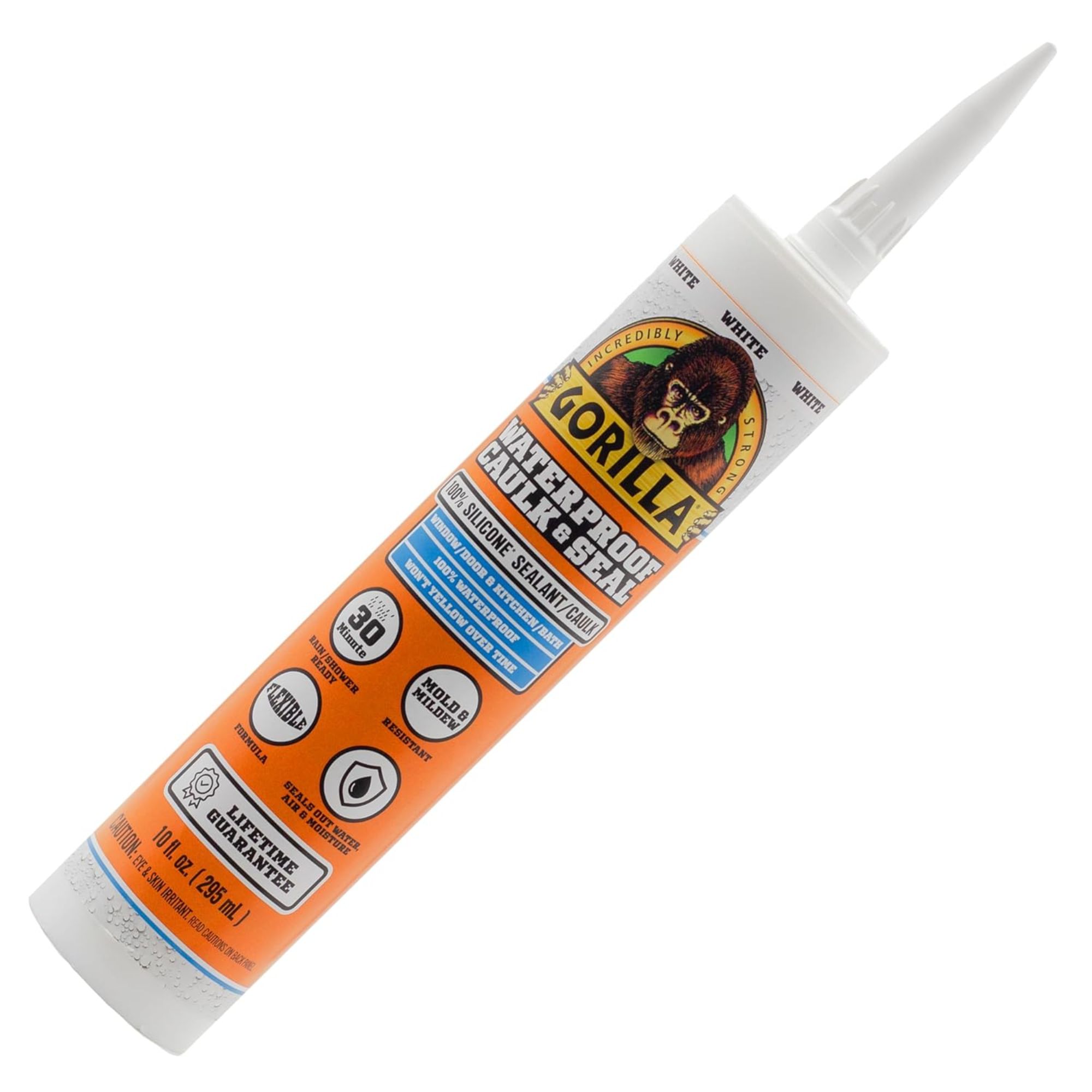
This all-purpose sealant is ready for water exposure in as little as 30 minutes, and effectively seals out air, water, moisture, and, most importantly, stops pests from moving in and out .
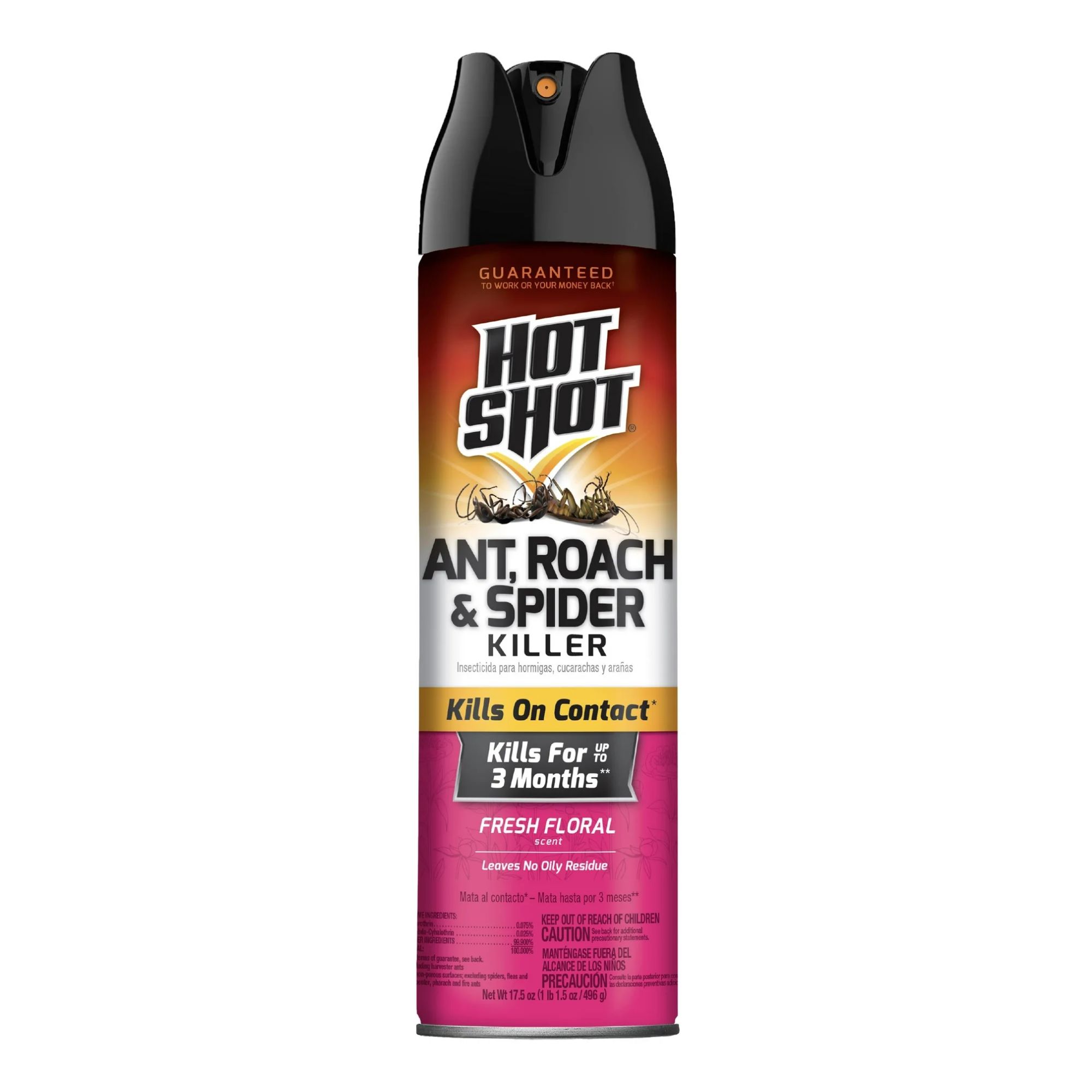
This bug spray kills on contact and keeps killing for up to three months, with a fresh floral scent.
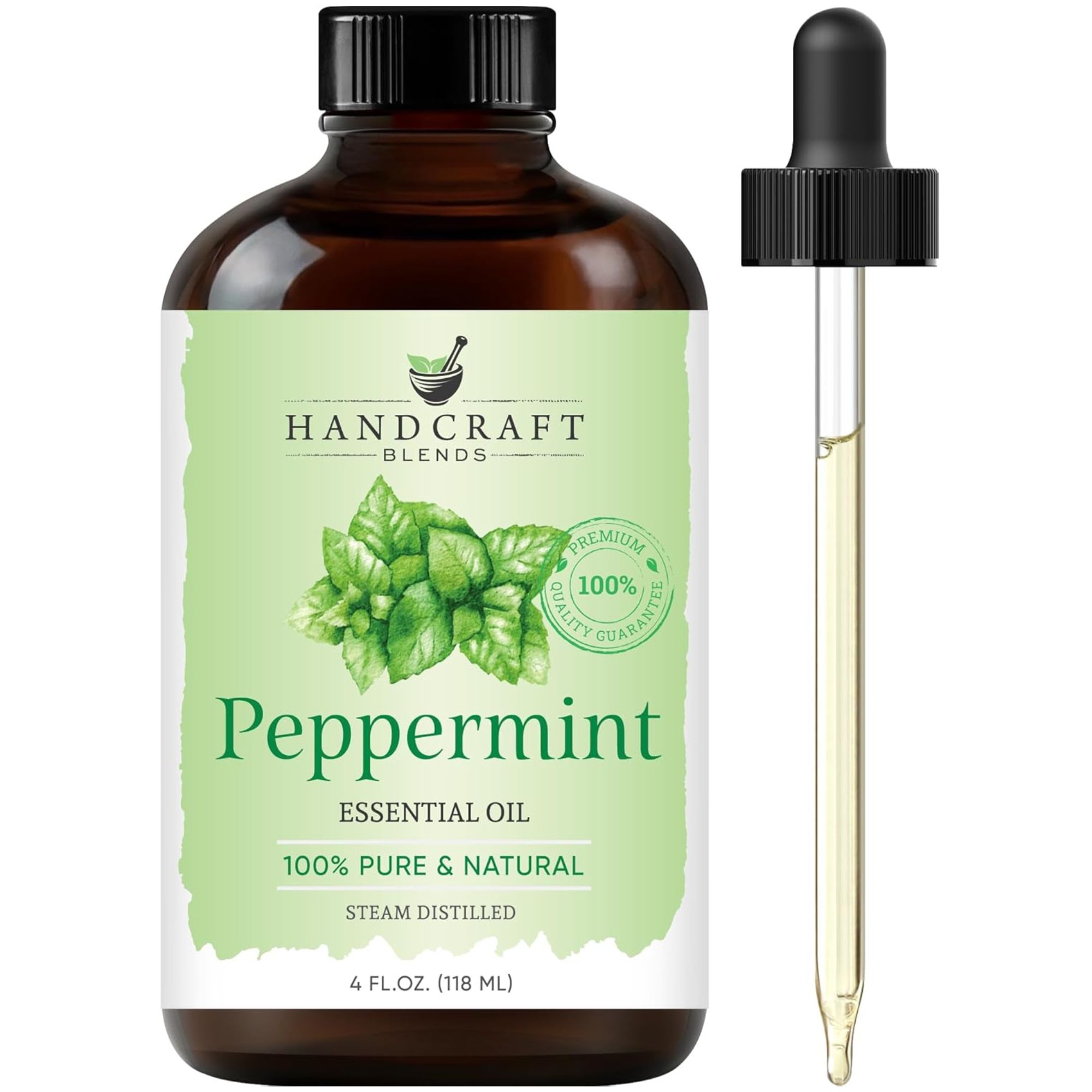
This peppermint oil is 100% pure and undiluted, making it even more effective at banishing bugs and other pests from your home, with no fillers or additives.
FAQs
What does vinegar do to roaches?
Plumbing expert Richard Mullins from H20 Plumbing advises, 'Vinegar is a natural solution often suggested for deterring cockroaches, primarily because of its strong odor.
'While it might temporarily repel them, it's not a reliable method for getting rid of a cockroach infestation.
'Cockroaches are highly adaptable pests, and they can become accustomed to various scents over time. Plus, vinegar doesn't address the root causes of the infestation, such as food and water sources.'
You can, however, effectively clean with vinegar, and you can use vinegar to kill mold, too.
Is cockroach gel effective?
Cockroach gel is a treatment that contains insecticide, bait, and fatty substances, including many of the household items that can be used to attract and kill this pest, including brown sugar, honey, boric acid, and others.
'I would definitely recommend Advion Cockroach Gel Bait available at Amazon, for getting rid of roaches, or preferably as part of a more intensive roach control strategy for your home,' says pest control expert Bennett.
'Essentially, Advion works as a bait that, once ingested by the roaches, will kill them within a couple of days. This is a slow-killing agent because its primary function is as a bait that roaches will take with them back to their nests and, therefore, spread it around and kill many more bugs than just the initial "finder." You only really need to use Advion in the form of small dots of gel you can place around common areas where you've seen roaches or around the entrance to nests you're aware of.'
If you need to know which insects cause holes in clothes, unfortunately, cockroaches are one of them, but using gel around (not inside) your closet can keep them at bay.
Meet our experts

Matt has been working in the pest control industry for over 14 years, after starting Green Pest Management, a Delaware-based pest control company, nine years ago. With his background and experience he is knowledgeable about a variety of pests, pest activity, and ways of dealing with infestations.
PURCOR Pest Solutions uses advanced pest control methods tailored to your area for the most effective solution possible, providing peace of mind by protecting your home long-term.

Braman Termite and Pest Elimination was founded in 1890, and strives to protect the public health, property and environment.
Not sure what to do after vacuuming pests? For starters, always empty the vacuum or its bag into a tightly sealed bag and sanitize the appliance and the area just vacuumed thoroughly.

Ottilie joined Homes & Gardens in 2024 as the News Writer on Solved, after finishing a Master's in Magazine Journalism at City, University of London. Now, as the Sleep Editor, she spends her days hunting deals and producing content on all things sleep – from mattresses and sheets to protectors and pillows, all of which she tests in her own home. She also has particular expertise in home fragrance, covering everything from candles to reed diffusers.
Previously, she has written for Livingetc and Motorsport Magazine, and also has a Master's degree in English Literature and History of Art from the University of Edinburgh, where she developed a love for inspiring interiors and architecture.
- Megan SlackHead of Celebrity Style News
- Lola HoultonNews writer